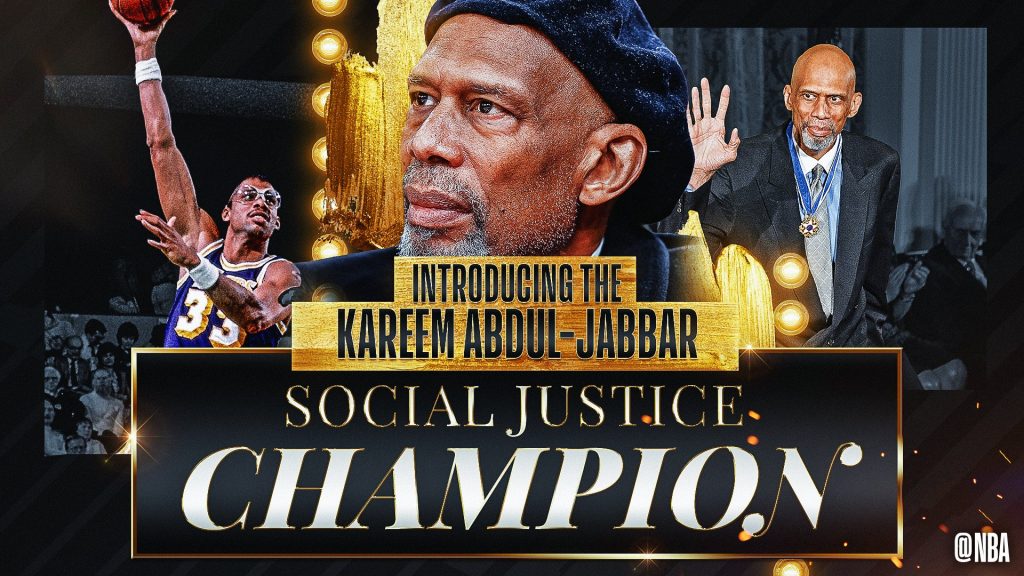The NBA, although not a political organization, allows and supports players who speak out about social justice issues. Prominent players like Jaylen Brown led a protest through the streets of Atlanta after the George Floyd incident, and LeBron James and Kevin Durant regularly use their platforms to speak out about issues such as racial injustice and police brutality. Given the number of players committed to social causes, it is not surprising that the NBA just announced a new award focused on social justice.
The “Kareem Abdul-Jabbar Social Justice Champion Award” honors an NBA player for his commitment to social justice and equality. The winner of the award must be a current NBA player and will be given $100,000 that they will donate to an organization of their choice. Four finalists will receive $25,000 that will go to their selected organization. All 30 NBA teams will nominate a player to receive the award and the finalists and winner will then be chosen by a committee made up of former NBA basketball stars, league executives, and leaders in social justice. In order to win this award, the current NBA player will have to show that they are “pursuing social justice and upholding the league’s decades-long values of equality, respect, and inclusion.”
Abdul-Jabbar played in the NBA for 20 seasons with the Milwaukee Bucks and the Lakers and is considered an inspiration. Not only is he the league’s all-time leading scorer, winning six championships and six MVP awards, but Abdul-Jabbar is also a notable civil rights activist. Abdul-Jabar grew up in NYC’s Dyckman housing projects where he was exposed to injustices affecting poor African Americans. Incidents such as the murder of Emmett Till in 1955, the Harlem riots of 1964, and the shooting death of James Powell by a New York police officer, gave rise to his involvement in racial politics. When he was just 17, Abdul-Jabbar met Dr. Martin Luther King Jr. in Harlem, N.Y., and was inspired by King’s message. Shortly afterward, as a student and basketball player at UCLA, Abdul-Jabbar participated in the Civil Rights Movement. His commitment to racial and social equality continued through his career and into retirement. He has written 14 books, raised funds to promote math and science education, and created the Skyhook Foundation which provides STEM opportunities to the disadvantaged. He was awarded the Presidential Medal of Freedom in 2016, an award recognizing his contribution to improving the country, by former President Barack Obama.
Social justice has been a hot and prominent topic in our country in 2020 and 2021. An annual award such as this one will not only recognize players who are already committed to social causes, but also highlight the importance of such issues and motivate other players to become involved in helping their community. Given how much influence these players have on younger generations and the media coverage this award will generate, younger athletes may gain awareness of the causes that their role models are involved in.
Racine Ly, a student at RHS, thinks this award is a positive one, serving as a catalyst for further change: “I think it’s great that they are giving an award to those who are pushing for racial equality because it can inspire young athletes, or even young black athletes like me to create change regarding racial equality. But just because that person wins the award it does not mean they have done all they can to create racial equality. No matter the achievements you get to in anything you do, you should never be satisfied until the job is done.”
Abdul-Jabbar, now 74 years old, notes the social issues of voter suppression, violence, unequal educational opportunities, and inadequate health care, have always been a problem in this country. He hopes with this award, real change will be made and it will inspire others to join the movement to correct these issues once and for all.
Brandon Shintani
Sports & Wellness Columnist
Graphic: NBA

